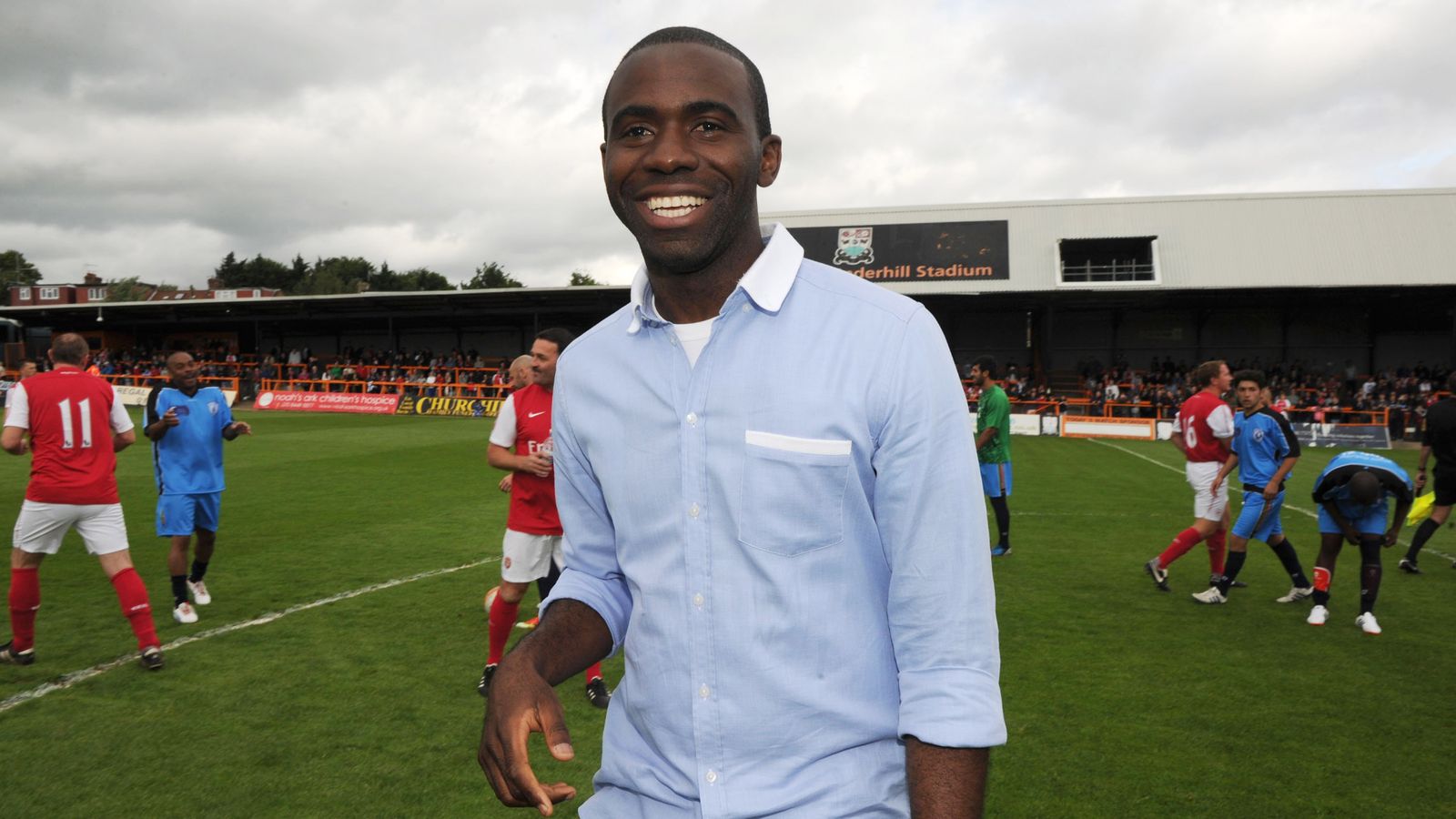It was March 17, 2012, just before the end of the first half in the FA Cup quarter-final tie between Tottenham Hotspur and Bolton Wanderers at White Hart Lane when midfielder Fabrice Muamba’s heart stopped. In what was described as probably the most public cardiac arrest in sporting history, doctors said Muamba was “in effect dead” for 78 minutes following his on-field collapse.
But a 23-year-old Muamba, born in Zaire before becoming a naturalized British citizen, was saved, and his recovery amazed many, including doctors. Here’s his story.
Forty-one minutes into the first half of the game when Muamba collapsed near the center circle, yards away from the action, it was Bolton physio Andy Mitchell who was the first to spot he had collapsed. “He went down in a sort of slow-motion, face-forward way, which was just completely not right,” Mitchell recalled in an interview. “My instincts were telling me something was seriously wrong here.”
Mitchell quickly rushed to the field before he was joined by Bolton’s Dr. Jonathan Tobin and Tottenham’s Dr. Shabaaz Mughal. Muamba was then face-down and gasping, and the three quickly started CPR. As Vice reported, Mughal flipped the player on his back and began chest compressions while Tobin began administering mouth-to-mouth. Seventy-four seconds into receiving CPR, doctors placed a defibrillator on his chest, trying to restore his normal heartbeat. “It was a really, really speedy operation that was performed on Fabrice,” Mitchell said.
All the while, the more than 30,000 fans in attendance had gone quiet, realizing how serious the situation was. They first sang Muamba’s name, over and over as if to compel him to stand up, but realizing he still wasn’t moving, the chants died down, and soon #Pray4Muamba started trending on Twitter.
At this time, Muamba was on a stretcher and headed into an ambulance. He was joined by Tobin and other paramedic staff as well as Dr. Andrew Deaner, Consultant Cardiologist at London Chest Hospital, who was at the game as a fan and had run on to the pitch to help. Muamba was taken to the London Chest Hospital, where staff had already prepared for the player’s arrival thanks to Deaner. While players in the dressing room and fans were waiting to hear good news, Tobin and his team continued the chest compressions in the ambulance before handing Muamba over to the team at the London Chest Hospital within 48 minutes.
Muamba was then dead, medically speaking. After having received a total of 15 shocks in the ambulance, he received another 15 at the hospital, but all those didn’t bring him back. Still, the doctors went on to have a machine perform CPR. As they were conducting another test, Muamba’s heart finally began to beat. “He was placed in a medically induced coma for the next day, and then as his body temperature slowly rose, Muamba moved his head to the side and woke up,” Vice reported.

In an April 2012 interview, Muamba shared what he remembers of that day he ‘died’. He said he felt dizzy towards the end of the first half of the game. “It wasn’t normal dizziness – it was a kind of surreal feeling like I was running alongside someone else’s body,” he told The Sun. “Then I started to see double. It felt almost like a dream. The last thing I heard was our defender Dedryck Boyata screaming at me to get back to help.”
“He obviously had no idea what was happening to me and neither had I. Then I just felt myself falling through the air and felt two big thumps as my head hit the ground in front of me. Then that was it. Blackness. I was dead.”
Following the incident, Muamba no longer played football but did not leave the sport. He worked as a pundit for ITV’s coverage of the Africa Cup of Nations and studied for a degree in sports journalism at Staffordshire University, graduating with honors in 2015. He also completed coaching qualifications with UEFA. What’s more, he started supporting scores of campaigns and products that promote heart health.
Since Muamba’s incident, scores of footballers have died after suffering suspected cardiac arrests in leagues around the world. Doctors say a common cause of these deaths is hypertrophic cardiomyopathy (HCM), a condition that causes the abnormal thickening of the heart muscle. HCM is usually difficult to detect. Players in leagues around the world are scanned for it and other heart conditions almost every year, but in Muamba’s case, no scan ever showed that he had an abnormal condition.
Walking out of the hospital just a month after the incident, Muamba, who then had a three-year-old son, said in an interview that he was glad for the defibrillator and the doctors that saved his life. Being a devout Christian, he also thanked God for protecting him. “Someone up there was watching over me. What happened to me was really more than a miracle. On the morning of the game I prayed with my father and asked God to protect me – and he didn’t let me down. I am walking proof of the power of prayer.”










